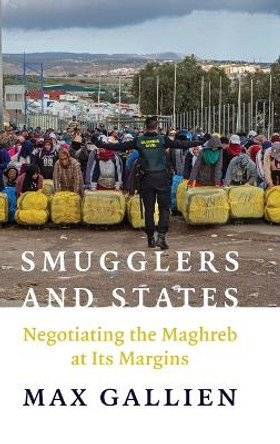Description
This book examines the rules and agreements that govern smuggling in North Africa, tracing the involvement of states in these practices and their consequences for borderland communities. Gallien demonstrates that, contrary to common assumptions about the effects of informal economies, smuggling can promote both state and social stability. States not only turn a blind eye to smuggling, they rely on it to secure political acquiescence and maintain order, because it provides income for otherwise neglected border communities. More recently, however, the securitization of borders, wars, political change, and the pandemic have put these arrangements under pressure. Gallien explores the renegotiation of the role of smuggling, showing how stability turns into vulnerability and why some groups have been able to thrive while others have been pushed further to the margins. With both rich empirical detail and novel theoretical contributions, Smugglers and States offers important insights into security and stability in North Africa and the prospects for economic inclusion in a context where many livelihoods exist outside of the law.
About the Author
Max Gallien is a research fellow at the Institute of Development Studies and the International Centre for Tax and Development. He is a coeditor of the Routledge Handbook of Smuggling (2022).
Reviews
Deeply researched, masterfully written, and persuasively argued, Smugglers and States turns the conventional wisdom about illicit trade on its head. In this truly pathbreaking book, Max Gallien makes a compelling case that smuggling is about state-making rather than state-weakening, that it can serve core state interests in order and stability, and that it is essential to our understanding of the political economy of North Africa. -- Peter Andreas, author of Smuggler Nation: How Illicit Trade Made America
Scholars have long pointed out that an illegal economy may be seen as legitimate by many and that those who sponsor it may obtain significant political capital. In this terrific book, Gallien unpacks another contradiction-namely, that even as smuggling undermines key aspects of statehood and creates critical dependence vulnerabilities for governments, it is also extensively embraced and regulated by some governments and their components. Drawing on impressive fieldwork, he details how and why that happens in cases frequently neglected by scholars of the Maghreb and of illegal economies overall, adding geographic, empirical, and conceptual value to analysis. -- Vanda Felbab-Brown, author of The Extinction Market: Wildlife Trafficking and How to Counter It
Smugglers and States deftly exposes the informal social contract that has stabilized the crumbling formal societal bargains in two North African states, tracing the formal-informal regulatory orders linking traders, officials, and police in the borderlands. This book examines the role of smuggling as a technique of governance that shores up livelihoods and political consent at the margins of the state, revealing how international pressures for border regulation to control migration and terrorism serve to distort and destabilize rather than contain political risks. -- Kate Meagher, author of Identity Economics: Social Networks and the Informal Economy in Nigeria
In this fascinating and detailed book, Gallien calls into question much of the received wisdom on the place of smuggling in North Africa. He shows that, far from being an activity on the margins of the state, it plays a much more integrated and important role in both politics and society. Essential reading for anyone interested not just in smuggling and North Africa but in the whole notion of "informal" economies. -- Michael Willis, author of Algeria: Politics and Society from the Dark Decade to the Hirak
Book Information
ISBN 9780231212892
Author Max Gallien
Format Paperback
Page Count 360
Imprint Columbia University Press
Publisher Columbia University Press







